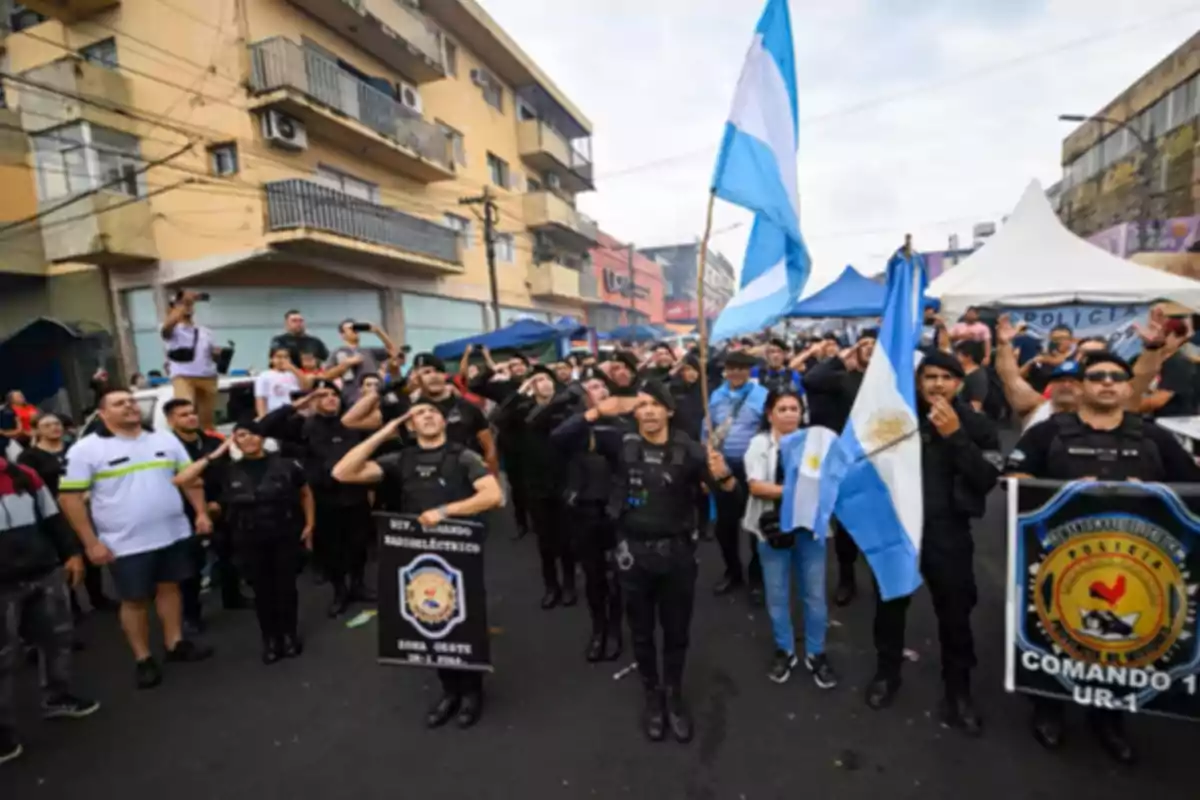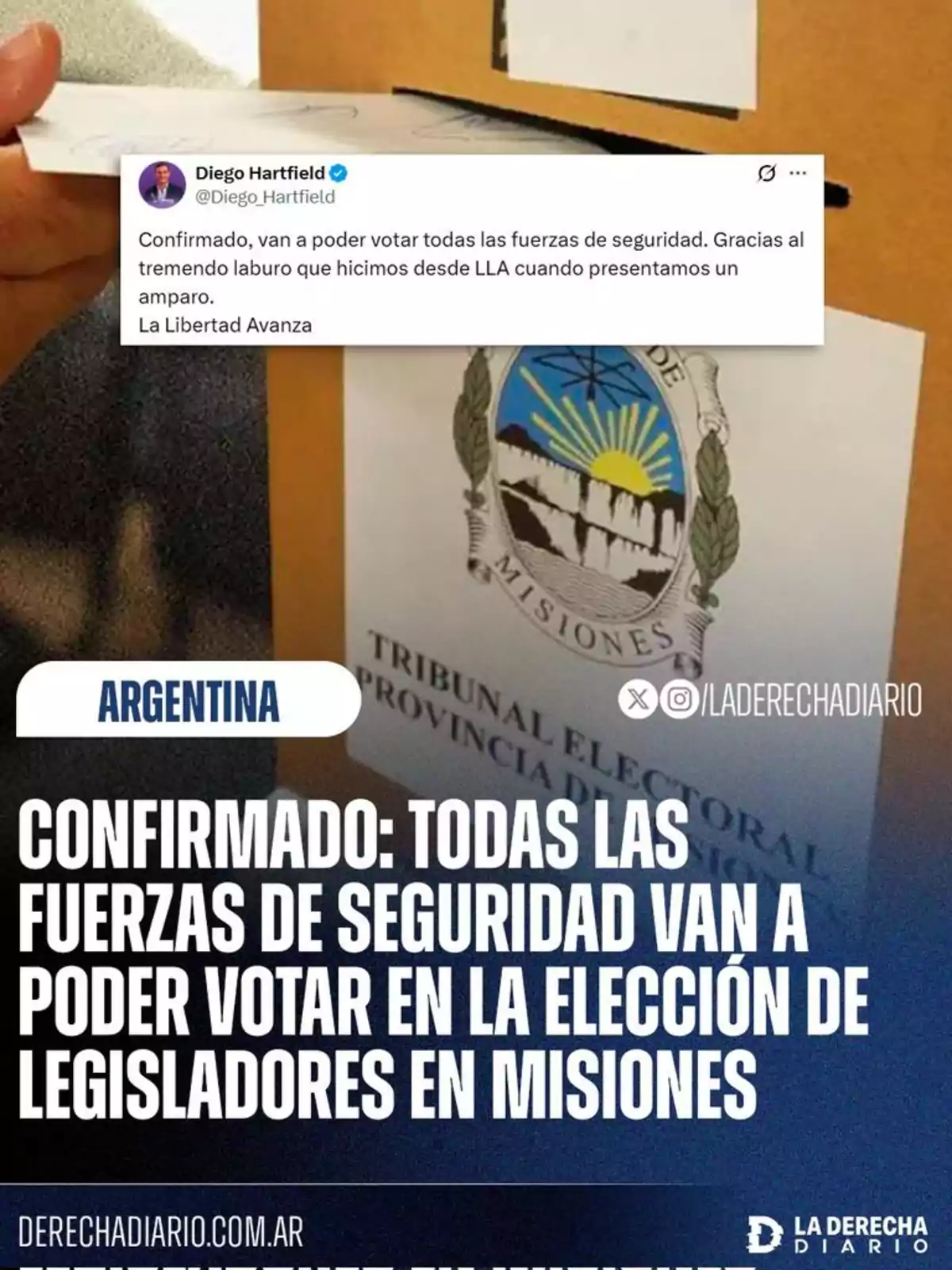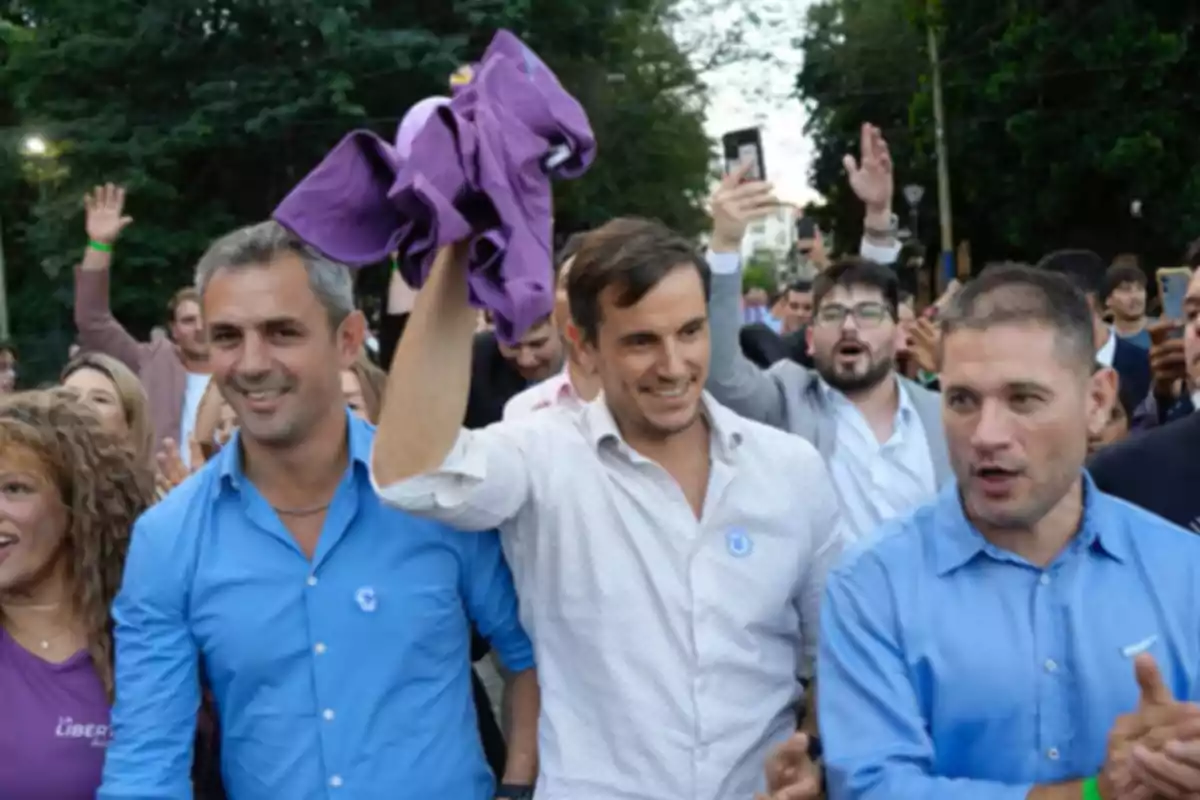
Thanks to LLA, the security forces of Misiones will be able to vote next June 8.
Under the protection of La Libertad Avanza, led by Diego Hartfield, security forces will be able to vote in Misiones
In a decision that sets a key precedent for the country, the Superior Tribunal of Justice (STJ) of Misionesauthorized this Wednesday the vote of nearly 16,000 members of the province's security and defense forces. This represents 1.6% of the electoral roll that had been excluded due to a controversial interpretation of Article 48 of the Provincial Constitution. Voters in Misiones will go to the polls next June 8 to renew 20 seats in the provincial legislature, as well as councilors in 10 localities and the Ombudsman in the city of Oberá.
The exclusion of police officers, personnel from the Penitentiary Service, federal forces, and the Army had been promoted days earlier by the local Electoral Tribunal, chaired by Cristian Benítez and composed of members Andrés Poujade and Augusto Busse. Relying on subsection 10 of Article 48, they ruled that "soldiers belonging to the armed forces and agents of national and provincial security forces shall not be allowed to vote."

The measure provoked widespread institutional rejection and was quickly challenged by various political and legal forces, especially by La Libertad Avanza (LLA), led in the province by legislative candidate Diego Hartfield. "All security forces will be able to vote. Thanks to the tremendous work we did from LLA when we filed an injunction," Hartfield wrote on his social media after the favorable ruling was announced.
The reversal of the decision came through the intervention of the STJ, chaired by Rosanna Pía Venchiarutti Sartori. The resolution was supported by all the ministers of the highest court and was based on the opinion of the provincial prosecutor, Carlos Jorge Giménez, who—at the request of Governor Hugo Passalacqua—issued a strong legality review. In his submission, Giménez argued that "Article 48 subsection 10 of the Provincial Constitution must be removed as it is manifestly contrary to the constitutional bloc."

The opinion also recalled that the subsection had already been challenged in previous rulings by the STJ itself, although without achieving lasting effects. This time, political and legal pressure achieved its goal. "Prohibiting these members from voting constituted a violation of human rights and the principle of political participation enshrined in national and international regulations," the prosecutor emphasized.
The decision, which was celebrated by national leaders of the ruling party, could have a strong political impact ahead of the election. In fact, a key institutional visit is anticipated in the coming days: Karina Milei, Secretary General of the Presidency; Martín Menem, President of the Chamber of Deputies of the Nation, and Hartfield himself will lead a rally in the provincial capital. They will also visit the city of Oberá, one of the main districts that will renew authorities.
In the political arena, the provincial ruling party in Misiones, led by the controversial Carlos Rovira, is putting forward current minister Sebastián Macías as its main figure. Meanwhile, Frente Unidos por el Futuro—a remnant of former Juntos por el Cambio—is presenting Santiago Nicolás Koch. Ramón Amarilla will also be a candidate, known for having been the spokesperson for the police uprisings at the beginning of 2024. He is currently detained in Penal Unit VIII of Cerro Azul, accused of "sedition" and "conspiracy" against the provincial government.
More posts: